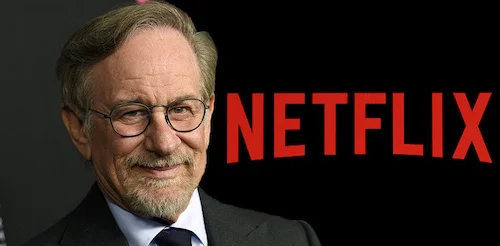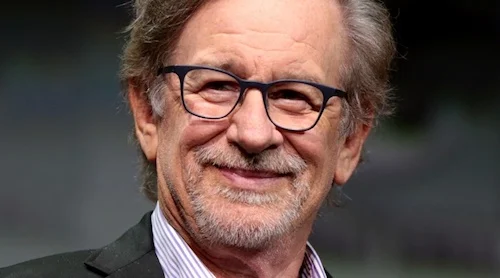Steven Spielberg's Misunderstanding of Streaming Services
He’s finally hit the wall. Steven Spielberg, one of Hollywood’s leading filmmakers when it comes to mainstream innovation (more-so a creator of the current state of how blockbusters operate, really) has become so detached from the current state of cinema, it’s actually beginning to show. In case you haven’t heard, Spielberg has been complaining about the inclusion of Netflix (and other streaming services) at the Academy Awards since late last year. This is likely because a film like Roma, or Manchester By The Sea (in a previous year) had a shot at being nominated for (and even winning) Best Picture. Now that the Academy Awards are over, his ignorance has continued to ring out, with statements that streaming-exclusive films should be disqualified.
Let’s look at the one thing I agree with. The movie theatre should not be a thing of the past. This is true. There is a certain experience that comes with seeing a film in a dark room, with an audience nearby, a flicker of the projector (even a digital projector will do), and the fumbling through your popcorn bag in the obsidian mist, trying to keep your eyes on Harrison Ford taking an eternity to swipe an artifact. Home releases are important, too. DVDs and Blu-Rays are the final state of how we can obtain films for our own home viewing in a physical sense. Sure, the content is digital, but we get to house these discs on our shelves, flip through the booklets, and hold the containers in our very hands (Criterion releases do make all of this much more lovely nowadays).
Spielberg knows this. Every release of his is an extravaganza. You have to see his fun films in 3-D, and his serious works get sent straight to the Oscars rafters (where you will have to be a part of the conversation, and take part in watching his works). Spielberg is far from the worst filmmaker on Earth, and even some of his more recent films have been pretty gripping (Lincoln, despite the phoned-in conclusion, and The Bridge of Spies, despite the glacial midsection). Spielberg films operate with a formula (hence the new term Spielbergian, when it comes to describing films of a similar nature), and this surpasses just how they function aesthetically. Spielberg is a business man first, and it shows with every single decision he’s ever made. Jaws is the first literal “blockbuster” (where line ups were many blocks long), and from there on out, he knew how to crack the code. Why do you think he’s so buddy-buddy and successful with George Lucas (the guy that finally connected cinema to franchising)?
All of this being said, we now know maybe why Spielberg is getting mad. It isn’t because we aren’t going to the cinemas anymore (the general we; I sure as hell go to the theatre many times, thank you very much). It’s because his blueprints are beginning to crumble. The marketability is going to disappear. You don’t need to champion the million reasons why you have to see X film once streaming takes over for good. You pay for the service. Any film or show can be promoted. It’s the HBO way of going about things. Oz, The Sopranos, The Wire, and Six Feet Under could not exist with cable limitations. Where are the times we can put in commercials during an hour-long episode? Why is there swearing and nudity? We absolutely have to end episodes of The Wire on cliffhangers, because who the hell would want to tune in next week without them? HBO revolutionized television, because it proved that series could no longer rely only on commercialism. There were no demographics, outside of the literal core people tuning in to see Jimmy McNulty struggle with his morals, and Stringer Bell learn how to play the game with more smarts.
You pay for a service. It goes towards the channel, and all of the shows on it. Netflix adopted this same ideology, and now we are at the point where Netflix is releasing its Oz or The Sopranos. We just had Roma, which changed so many things about how films operate (industry wise, and creation wise). All of this is going to startle the filmmakers that have a fixed mindset. Why shouldn’t Spielberg keep doing a little bit of the same-old, same-old? He’s been reaping his cinematic benefits for decades now.
What happens during times of change? Adaptation. HBO started, and cable had to adapt. Stations started to take risks. New stations are created. Online streaming for each station is embraced. Cinema is going through a similar transition. There will always be a need for theatres because of the experience they provide (though many will shut down because of cost related concerns). Home media — it pains me to say — might have a much rougher route. Excluding paraphernalia obsessives (like yours truly), most home consumers are streaming now. It’s cheaper, and there’s less clean up (and storage space needed). Samsung has already ceased making Blu-Ray players earlier this year, and I’m only sure other tech titans will follow suit. Cinema is not dying. It’s merely adapting, like businesses, animals, and Mother Earth do when they face adversity.
What’s not adapting are filmmakers like Spielberg that are sticking to what they know. Spielberg wants to challenge Netflix and other streaming services, insisting that they are not film. Firstly, Spielberg was very keen on changing how films operated when he was first on the scene (and capable of making such a shift); once again, blockbusters as we know them now (film, promotion, everything) are from Spielberg’s playbook. If cinema should not be changed, was it right for him to persuade it in his own way? Secondly, if film should be based on its origins, firstly, it is a physical medium that relies on light to shine through literal film. All of Spielberg’s most recent works are digital. That’s already a deviation from the purity of what cinema’s original context is.
Thirdly, cinema has always been about innovations; never has it stayed still for a long period of time. We started off with the six-seconds-long shorts that contained everyday occurrences (workers, children playing, a kiss). Stories got involved. Editing got refined. Sound was figured out. Colour was discovered, and then was integrated fully years later. Film went to digital. Cinema is no longer the first iteration it once was, but it still continues in its own way. You’d think that someone like Spielberg, a master studier of the medium, would know this.
But, once again, it’s because of the challenge to his formula that Spielberg is livid. None of this is meant to disparage the creator of some of cinema’s finest works ever (particularly Schindler’s List). This is all a reaction to someone who should know better, is playing dumb, and trying to stick to old traditions for selfish reasons. We love cinema too, Spielberg. We want things to stay as they are. They aren’t going to, simply because they never did. The only way is forward, which even Indiana Jones (despite looking backwards at history) knew (as he never hesitated to push on towards his missions).
Andreas Babiolakis has a Masters degree in Film and Photography Preservation and Collections management from Ryerson University, as well as a Bachelors degree in Cinema Studies from York University. His favourite times of year are the Criterion Collection flash sales and the annual Toronto International Film Festival.



